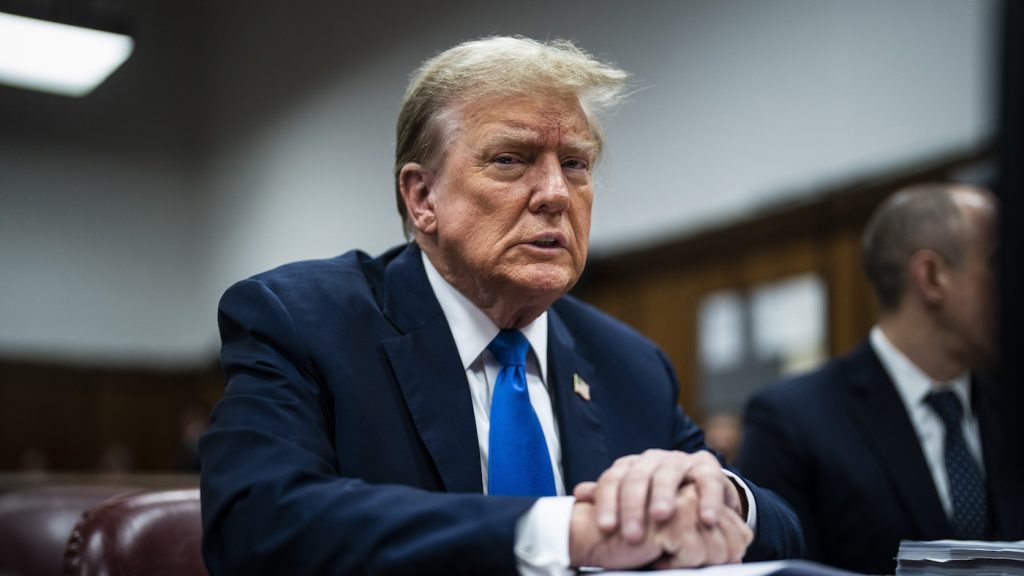NEW YORK – A complete jury has been chosen for the former President Trump’s hush money case, and the trial is set to start with opening statements on Monday.
After about 200 potential jurors were reviewed by the judge, Trump’s attorneys, and Manhattan prosecutors, 12 jurors and six alternates were chosen to hear the first criminal case involving a former U.S. president.
“We have now finished selecting the jury for this case,” Justice Juan Merchan announced.
Trump is charged with altering business records to hide a hush money agreement with an adult film actress before the 2016 election. He has pleaded not guilty.
The jury represents a diverse group of Manhattan residents, including people from Harlem to Chelsea, such as physical therapists, investment bankers, immigrants, and lifelong New Yorkers.
Jury selection lasted four days, and it was somewhat complex due to Trump’s controversial political reputation, strong connections to New York City, and media coverage.
The final five alternates were chosen early Friday afternoon, eliminating the need to bring in a third group of 96 potential jurors who were waiting in the courthouse. The judge thanked court staff for working through the normal lunch hour to efficiently complete the process.
Once seated, the jurors were sworn in and were instructed to return on Monday morning, when the judge anticipates that opening statements will begin.
At the beginning, about 100 New Yorkers were excused after admitting they did not think they could be “fair and impartial” to Trump.
Around 50 New Yorkers were excused on each of the first two full days of jury selection after admitting they did not believe they could be “fair and impartial” to Trump.
Others mentioned that they knew people connected to Trump or were familiar with his contributions to the city, and they provided neutral and positive evaluations of the former president’s time in the city.
And, of course, most were aware of his politics.
“He was our president,” said one potential juror who was eventually chosen for the jury. “Everyone knows who he is.”
One person, who was rejected by the district attorney’s office, said he admired Trump’s success as a businessman and politician, stating that he “forged his way” and “kind of made history.”
Another individual, who was eventually selected for the jury, said Trump “seems very self-centered and acting in his own interest.”
Some potential jurors’ past social media posts about the former president — including from the heat of the 2016 and 2020 elections — came back to haunt them.
A woman apologized to the former president for the “tone” of posts she made years earlier, one of which criticized Trump as “racist, sexist narcissist”; she was removed for a valid reason by the judge. Another person was dismissed over a post that said “Get him out, and lock him up,” referring to Trump.
Other potential jurors asked to be excused from their duty due to the stress of serving on the high-profile case.
“This is much more stressful than I anticipated,” an excused juror said.
The jury's selection means opening statements could start as soon as Monday morning, with witness testimony to follow soon after.
Prosecutors will present their case first. In order to prove Trump's guilt, they must persuade the jurors that the former president, who is facing 34 charges of falsifying business records related to a hush money payment made by his former lawyer, Michael Cohen, to adult film actress Stormy Daniels before the 2016 Election Day, did so with the intention to deceive and to commit or further another crime.
They will try to depict the payment to Daniels as a small part of a broader "catch-and-kill" plan to suppress negative rumors about Trump before the election.
Trump refutes the scandalous accusations and has pleaded not guilty.









